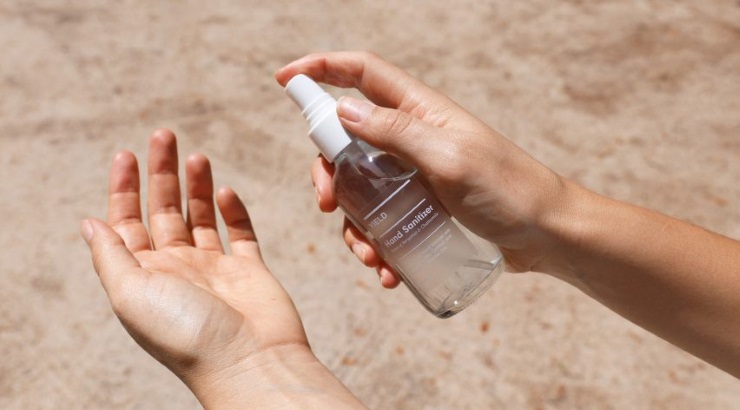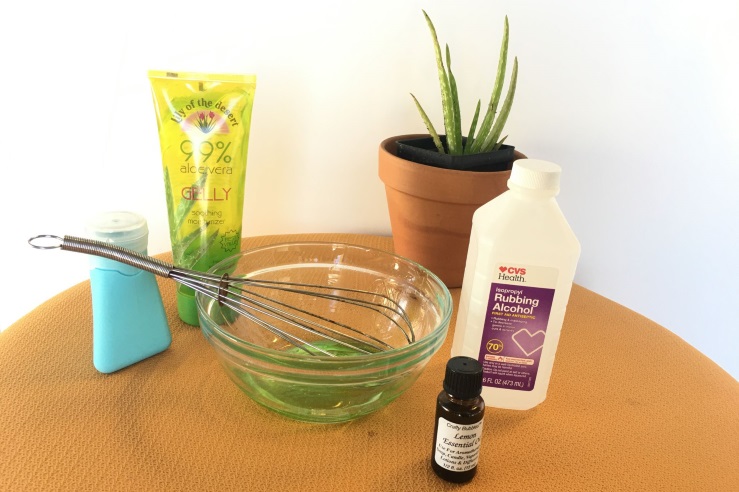Features
Covid-19: How to Make Your Hand Sanitizer at Home
Hand sanitizers should not replace washing of hands with clean water and soap.

Following the outbreak of the Covid-19 pandemic, most stores around the world have run out of hand sanitizer as billions of people seek to protect themselves from the coronavirus.
Although nothing offers better protection against the virus than clean water and soap, the Centers for Disease Control and Prevention (CDC), recommends the use of an alcohol-based hand sanitizer (60% alcohol) when water and soap are not available.
Luckily, it is possible to make your hand sanitizer at home provided you have the right ingredients. Here’s how to make hand sanitizer at home:
What you’ll need
Equipment / Tools:
Glass jar and spoon
Funnel
Bottle with spray pump
Ingredients:
One cup 99% rubbing alcohol (isopropyl alcohol) or ethanol
1/4 cup aloe vera gel
1/3 cup of glycerine
10 to 15 drops of essential oil
Hydrogen peroxide (optional)

Instructions
Step 1: Gather up the requirements
Get hold of a bottle of rubbing alcohol (isopropyl alcohol) which tends to be 90-99% alcohol.
Although it is advisable to work with 70% alcohol, making homemade sanitizer calls for the strongest alcohol since mixing 70% alcohol with other ingredients dilutes the alcohol, causing the final product to fall below 60% alcohol.
In addition to alcohol, be sure to buy aloe vera gel, glycerine (to counter the skin-drying effects of alcohol), essential oils, and hydrogen peroxide (optional).
RELATED: 7 Tips for Architects Working from Home
Besides adding some scent to your hand sanitizer, essential oils can help protect you against germs. It is therefore advisable to settle for antibacterial essential oils such as Rosemary oil, and Lavender oil. Avoid Tea tree oil because many people are sensitive to the product.
Step 2: Mix the ingredients
Pour one cup of rubbing alcohol into your glass jar. Add 1/4 cup of aloe vera, and 1/3 cup of glycerine. If you wish to do so, add 10 to 15 drops of essential oils to the mixture to give it a nice fragrance.
You may also add a teaspoonful of hydrogen peroxide.
Use a spoon to stir the mixture until you get the consistency that you desire. However, make sure the final product is neither too thick nor too thin.
3.) Pour hand sanitizer into a spray bottle
Now that your product is ready, use a funnel to pour homemade hand sanitizer into your spray bottle, screw the top of your bottle tightly – but do not use the product yet.
The World Health Organization recommends that you let your product sit for at least 72 hours before you can start using it. Within that duration, the homemade hand sanitizer will kill any bacteria that might have been introduced during the mixing process.
CAUTIONARY STATEMENT: As advised by health officials, hand sanitizers should not replace washing hands with clean water and soap. It should only be used when water and soap are not available.














